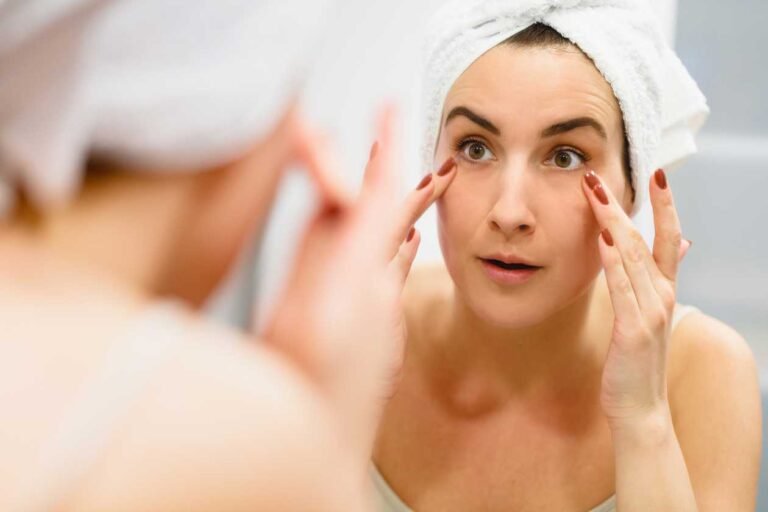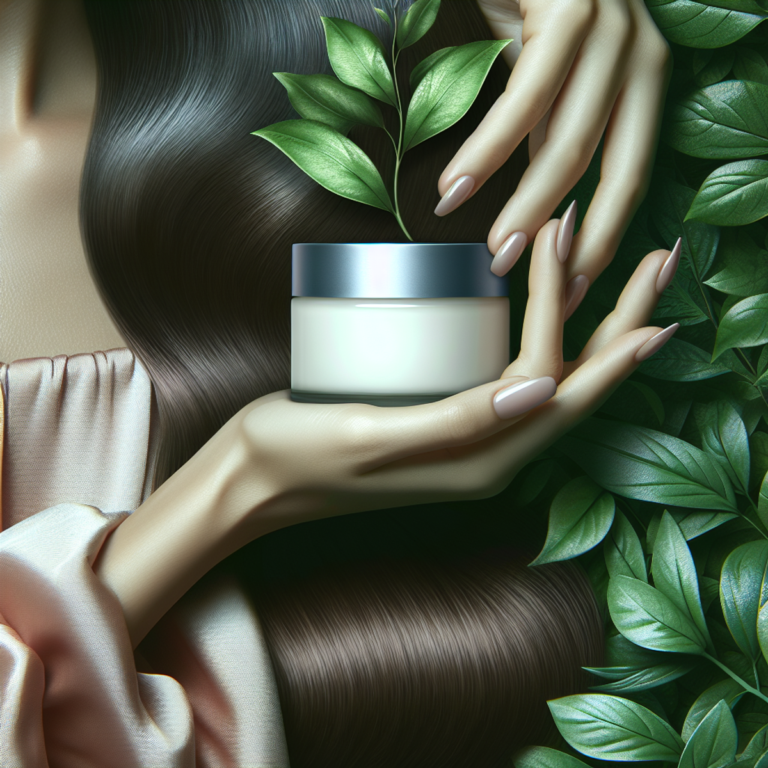The Skincare Trends, Beauty Buzzwords And Powerfully Effective Products To Know In 2024

Introduction
Skincare trends and beauty buzzwords are constantly changing, shaping the beauty industry and influencing what consumers like. As we look ahead to 2024, it’s important to stay updated about the key skincare trends, popular beauty buzzwords, and highly effective products that will dominate the market.
Skincare trends not only show our desire for healthy and glowing skin but also highlight the progress in technology and science that drive innovation in the industry. These trends guide us towards better skincare routines and help us get the results we want.
In recent years, beauty buzzwords have become a big part of our everyday language. They are catchy terms that catch our attention and make us interested in new products. Beauty buzzwords often include specific ingredients, techniques, or approaches that promise great results.
In this article, we will explore the exciting skincare trends, break down popular beauty buzzwords, and introduce you to the highly effective products that will shape the beauty industry in 2024. By understanding these trends and buzzwords, you can make smart choices about your skincare routine and find groundbreaking products that give amazing results.
Regenerative Medicine and Individualized Approach to Skin Care
The field of skincare is undergoing a major transformation with the introduction of regenerative medicine, which brings in advanced techniques and technologies like stem cell therapy. This new approach aims to use the body’s natural healing and renewal abilities to improve skin health and appearance.
The Power of Regeneration
Regenerative medicine focuses on using the body’s own resources to promote healing and regeneration. When applied to skincare, it involves utilizing specialized substances that support the skin’s natural processes at a cellular level.
- Exosomes: These are tiny particles released by stem cells that carry important signaling molecules. In skincare, exosomes can be used to communicate with skin cells and encourage them to repair and regenerate.
- Growth Factors: These are proteins that play a crucial role in cell growth, division, and repair. By introducing growth factors into the skin, we can stimulate the production of collagen and other essential components for youthful-looking skin.
The Benefits of Personalization
One size does not fit all when it comes to skincare. Each person’s skin is unique, with its own set of characteristics and concerns. That’s why an individualized approach is gaining popularity in the skincare world.
By tailoring products and treatments to specific needs, we can address issues more effectively and achieve better results. Here are some key aspects of personalized skincare:
- Understanding Skin Type: Different skin types require different care routines. Whether you have oily, dry, sensitive, or combination skin, it’s important to use products that are suited for your specific type.
- Targeting Concerns: Whether it’s wrinkles, dark spots, acne, or other specific concerns, personalized skincare focuses on using ingredients and treatments that directly address these issues.
- Adapting to Lifestyle: Factors like sun exposure, pollution levels, stress levels, and diet can all impact the health of your skin. A personalized approach takes these factors into account and recommends adjustments to your skincare routine accordingly.
The Future of Skincare
As the field of regenerative medicine continues to advance, we can expect more innovative solutions for skincare. For instance, biotech beauty is ushering in a new era by combining scientific advancements with cosmetic science. Here are some potential developments on the horizon:
- Gene-Based Skincare: Understanding how our genes influence our skin can lead to customized products and treatments that work specifically for our genetic makeup.
- Microbiome-Friendly Products: The microbiome, which refers to the community of microorganisms living on our skin, plays a crucial role in its health. Future skincare products may focus on maintaining a healthy balance of these microorganisms.
- Advanced Delivery Systems: Finding better ways to deliver active ingredients into the skin can enhance their effectiveness. This could involve technologies like nanocarriers or microneedles.
With ongoing scientific research in fields like skin care, these trends continue to evolve, offering consumers a more tailored and science-driven approach to achieving optimal skin health and appearance.
The Rise of Neurocosmetics and the Science Behind It
Neurocosmetics, an innovative approach to skincare, merges neurology and the intricate connection between the brain and skin. The objective is to enhance the efficacy of beauty products by targeting specific neural pathways associated with skin health. Unlike conventional skincare methods, neurocosmetic formulations employ advanced techniques rooted in scientific research.
Understanding the Relationship Between the Brain and Skin
Neurocosmetics revolves around the intricate interplay between our emotions, thoughts, and skin condition. It acknowledges that psychological factors significantly impact our skin’s appearance and texture. By developing products that interact with the nervous system, neurocosmetics endeavors to optimize both the health and aesthetics of our skin.
Key Ingredients and Technologies in Neurocosmetics
Neurocosmetic formulations often feature specific ingredients or incorporate innovative technologies to achieve their desired effects:
1. Peptides and Neurotransmitters
- Peptides: These minute molecules effectively communicate with our skin cells, influencing processes such as collagen production or inflammation reduction.
- Neurotransmitters: In skincare products, certain neurotransmitters like acetylcholine or dopamine are utilized to regulate neural activity in our skin. This regulation potentially improves its resilience and vitality.
2. Adaptogens and Stress-Reducing Compounds
- Adaptogens: These natural substances, including Rhodiola Rosea or Ashwagandha, possess the ability to aid our bodies in adapting to stress. In neurocosmetics, they may mitigate the negative impact of psychological stress on our skin.
- Stress-reducing Compounds: Ingredients like gamma-aminobutyric acid (GABA) specifically target stress-induced damage in our skin cells. They create a more relaxed and balanced environment.
3. Neuro-Cosmeceutical Devices
Some companies are even pioneering innovative devices that combine beauty treatments with neurotechnology. These devices employ specific stimuli or frequencies to activate certain neural pathways, enhancing the absorption or effectiveness of skincare products.
The Science Behind Neurocosmetic Effectiveness
Neurocosmetics heavily relies on our understanding of neuroplasticity, which is the brain’s remarkable ability to adapt and change over time. By harnessing this phenomenon, neurocosmetic products can:
- Boost our skin’s natural defenses against external stressors
- Improve its ability to recover from damage
- Enhance overall skin health by optimizing neural communication
Through neurological modulation, neurocosmetics aims to provide long-lasting benefits for our skin.
By learning more about neurocosmetics and the scientific principles behind them, consumers can make informed choices. Understanding how these advanced formulations leverage the brain-skin connection can help individuals discover superior skincare results. In fact, certain brands such as ID Swiss Botanicals are already gaining recognition in this field.
3. Supercharged Actives for Intensive Skincare Treatments
The skincare industry is shifting towards using highly potent active ingredients in modern skincare products. These powerful actives are created to provide strong treatments and deliver effective results. Here are some important points to know:
Trend Towards Potent Active Ingredients
Skincare lovers are increasingly interested in using products that have concentrated and effective active ingredients. These strong compounds are made to target specific skin issues like wrinkles, dark spots, and acne more efficiently.
The benefits of using supercharged actives include:
- Faster results
- Specific treatment for stubborn skin problems
- Overall improvement in skin texture and appearance
Potential Risks and Considerations
While supercharged actives can give great results, it’s important to be aware of the potential risks that come with these strong formulations. Using too much or applying them incorrectly can cause:
- Irritation
- Sensitivity
- Adverse reactions
It’s crucial for people to be careful and do thorough research before adding supercharged actives to their skincare routines.
Innovative Delivery Systems and Formulations
To make sure that supercharged actives work as effectively as possible, skincare brands are developing new ways to deliver them into the skin. They’re investing in innovative delivery systems and formulations that help these potent ingredients penetrate deeper and get absorbed better.
Some of these technologies include:
- Nanotechnology
- Encapsulation techniques
- Advanced emulsion systems
By using these methods, skincare products can ensure that the powerful ingredients reach their intended targets within the skin layers, maximizing their performance.
The use of supercharged actives in skincare products is a new approach to addressing different skin concerns. As customers look for more powerful solutions, the industry will continue focusing on creating strong formulas that are safe, effective, and innovative.
4. Navigating Evolving Regulations: Inclusivity and Sustainability in the Beauty Industry
The beauty industry is going through a big change as rules change and customers demand more inclusivity in product development and marketing. This shift towards inclusivity is not just because of new rules, but also because consumers are becoming more diverse.
Embracing Inclusivity in Product Development and Marketing
- Diversity and Representation: As rules change to promote inclusivity, there is a bigger focus on offering products that work for different skin types, tones, and concerns. This goes beyond having a wide range of makeup shades to also include skincare options that can meet various individual needs.
- Cultural Sensitivity: Beauty brands are starting to understand how important it is to be culturally sensitive in their marketing. They are learning to appreciate different beauty standards and practices from around the world without appropriating them.
- Gender-Neutral Products: The idea of gender-neutral beauty products is becoming more popular, with a focus on creating formulas that can be used by anyone, regardless of their gender identity. This challenges traditional ideas about who beauty products are for and promotes inclusivity.
Sustainable Practices in Beauty Industry
- Packaging Innovations: Because people are worried about the environment, beauty brands are trying to find ways to use packaging that doesn’t harm the planet. They are looking into materials that can break down naturally, containers that can be refilled, and simple designs that use less packaging overall.
- Eco-Friendly Formulations: There is a growing demand for skincare products that are good for both our bodies and the environment. This has led to the creation of items made with natural ingredients that can be renewed sustainably. At the same time, there is a push to reduce the use of harmful chemicals and promote clean beauty practices.
- Ethical Sourcing: Sustainability isn’t just about what goes into a product, but also where the ingredients come from. More and more consumers want to support brands that treat their suppliers fairly and take steps to protect the environment during sourcing.
Regulatory Compliance and Consumer Engagement
- Transparency: As rules change, beauty brands need to be more open about what goes into their products, how they are made, and what they are doing to be socially responsible. This transparency helps build trust and allows consumers to make choices that align with their values.
- Community Engagement: Brands are using social media and other online platforms to connect with their customers on topics like inclusivity and sustainability. They are actively seeking feedback, sharing educational content, and showing support for causes related to diversity and the environment.
In dealing with these changing rules, beauty brands have a chance to not only follow the law but also make a positive impact on the industry. By focusing on inclusivity and sustainability, they can create a skincare world that is fair for everyone and better for the planet.
5. Key Skincare Ingredients to Watch Out For
In the ever-changing world of skincare, it’s important to stay updated on the latest ingredients and treatments. As we look ahead to 2024, there are several key skincare ingredients that are expected to have a big impact. From stem cell therapies to sirtuins and nanofat injections, these ingredients offer exciting possibilities for skin rejuvenation and anti-aging treatments.
Explore the Potential of Stem Cell Therapies
Stem cell therapies have been a topic of great interest in recent years, offering impressive regenerative effects on the skin. These therapies involve using stem cells derived from various sources, such as adipose tissue or bone marrow, to promote skin repair and rejuvenation.
One potential use of stem cell therapies is in anti-aging treatments. Stem cells can transform into different types of cells and help replenish lost collagen and elastin, which are crucial for youthful-looking skin. By stimulating the production of these essential proteins, stem cell therapies can improve skin texture, elasticity, and overall appearance.
However, it’s important to note that the use of stem cell therapies in skincare is still controversial. The ethical concerns surrounding where they come from and their possible long-term effects are still being discussed. As a consumer, it’s essential to stay informed and consult with a trusted skincare professional before considering stem cell-based treatments.
Unveiling the Role of Sirtuins
Sirtuins are a group of proteins that have gained significant attention in recent years due to their connection to cellular longevity and overall health. In skincare, sirtuins play a role in maintaining youthful-looking skin by promoting cellular repair and defense mechanisms.
These proteins are involved in various processes within the skin cells, including DNA repair, inflammation regulation, and oxidative stress management. By activating sirtuins through targeted skincare products or treatments, it’s possible to support the natural repair mechanisms of the skin and combat signs of aging.
Look out for skincare products that contain sirtuin-activating ingredients such as resveratrol, niacinamide, or peptides. These powerful compounds can help promote skin resilience, improve texture, and reduce the appearance of fine lines and wrinkles.
Nanofat Injections for Volume Restoration and Scar Revision
Volume loss and scars are common concerns that many individuals face. Traditional approaches to address these issues often involve surgical procedures or dermal fillers. However, nanofat injections have emerged as a minimally invasive alternative with promising results.
Nanofat injections involve extracting fat cells from one area of the body, usually through liposuction, and then processing them to create a fine emulsion rich in regenerative cells. This emulsion is then injected into targeted areas to restore volume, improve skin texture, and minimize the appearance of scars.
What makes nanofat injections unique is their ability to stimulate collagen production and enhance tissue regeneration. The regenerative cells present in the emulsion release growth factors that promote healing and rejuvenation of the skin.
It’s important to consult with a qualified medical professional who specializes in nanofat injections to ensure safe and effective treatment. They can assess your unique needs and provide personalized recommendations based on your specific concerns.
Embracing Future Trends
In conclusion, keeping an
6. Exploring Nature’s Pharmacy: From Mushrooms to Algae
Natural ingredients have always been a popular choice in skincare products, and in 2024, we can expect the trend to continue. From mushrooms to algae, nature’s pharmacy is providing us with powerful ingredients that offer numerous benefits for our skin.
Incorporating Mushrooms into Skincare Routines
One of the most exciting trends in skincare is the growing popularity of mushrooms as a key ingredient. Mushrooms have been used for centuries in traditional medicine due to their various health benefits, and now they are making their way into our skincare routines. Here are some reasons why mushrooms have become such a buzzworthy ingredient:
- Hydration: Mushrooms are known for their ability to retain water, making them excellent for hydrating the skin. They contain polysaccharides that help lock in moisture and prevent dehydration, leaving your skin plump and supple.
- Brightening: Certain types of mushrooms, such as shiitake and reishi, are rich in antioxidants that can help brighten the complexion and even out skin tone. These antioxidants help combat free radicals and reduce the appearance of dark spots or hyperpigmentation.
- Anti-inflammatory: Mushrooms possess anti-inflammatory properties that can soothe irritated or sensitive skin. They can help calm redness, reduce inflammation, and promote a more balanced complexion.
- Antimicrobial: Some mushrooms have antimicrobial properties that can help fight acne-causing bacteria on the skin’s surface. Incorporating mushroom-based products into your routine may help keep breakouts at bay.
The Rich Nutrient Profile of Algae
Another natural ingredient gaining traction in the skincare industry is algae. Algae are aquatic plants that thrive in various environments, from freshwater to seawater. They offer a wide range of benefits for the skin due to their nutrient-rich composition:
- Moisturization: Algae are excellent moisturizers as they contain a high concentration of polysaccharides, which help the skin retain moisture. This makes them ideal for hydrating dry or dehydrated skin, leaving it soft and supple.
- Antioxidants: Algae are rich in antioxidants such as vitamins A, C, and E, which protect the skin against free radical damage. These antioxidants help prevent premature aging and keep the skin looking youthful.
- Detoxification: Some types of algae, like spirulina and chlorella, have detoxifying properties that can help remove impurities from the skin. They aid in purifying pores and reducing the appearance of blemishes or toxins on the skin’s surface.
- Nourishment: Algae are packed with essential minerals and nutrients that nourish the skin. These include calcium, magnesium, iron, and zinc, which promote healthy cell function and support overall skin health.
Exploring the Potential Applications
Both mushrooms and algae offer a wide range of possibilities when it comes to skincare products. Here are some potential applications to look out for:
- Mushroom-infused serums: Serums enriched with mushroom extracts can deliver hydration and brightening benefits to your skincare routine. Look for products that feature specific mushroom varieties known for their skincare properties.
- Algae-based masks: Algae masks provide intense hydration while detoxifying the skin. They can be particularly beneficial for those with dry or congested skin.
- Mushroom or algae cleansers: Cleansers formulated with mushrooms or algae can help purify the skin while providing nourishment and hydration.
- Algae-infused moisturizers: Moisturizers that contain algae extracts offer long-lasting hydration and antioxidant protection.
Incorporating these natural ingredients into your skincare routine can provide numerous benefits for your skin. However, as with any new ingredient, it’s important to patch test and observe how your skin reacts. Everyone’s skin is unique, and what works for one person may not work for another.
By exploring nature’s pharmacy and embracing the power of mushrooms and algae in skincare, you can enhance your routine with ingredients that are not only effective but also derived from sustainable sources. So why not give these natural wonders a try and experience their transformative effects on your skin?
Remember, the beauty industry is constantly evolving, and staying informed about new trends and innovations will help you make the best choices for your skincare needs.
7. Beyond Traditional Actives: The Role of Niacinamide, Alt-Retinols, and Copper Peptides
In the ever-evolving world of skincare, new ingredients are constantly emerging as key players in addressing various skin concerns. Niacinamide, alt-retinols, and copper peptides are among the rising stars in the industry. Let’s take a closer look at these powerful actives and how they can revolutionize your skincare routine.
Examine the rising popularity of niacinamide as a multi-tasking ingredient in addressing multiple skin concerns.
Niacinamide, also known as vitamin B3, has gained significant attention in recent years for its versatile benefits for the skin. This multi-tasking ingredient offers a wide range of advantages that make it suitable for almost every skin type and concern.
Here are some key benefits of niacinamide:
- Improves skin barrier function: Niacinamide strengthens the skin’s protective barrier, reducing moisture loss and enhancing overall hydration. This helps to improve the skin’s resilience against environmental stressors.
- Reduces hyperpigmentation: Niacinamide is known for its ability to inhibit melanin production, making it an effective ingredient for fading dark spots, acne scars, and melasma.
- Controls sebum production: By regulating oil production, niacinamide helps to minimize excess sebum on the skin’s surface, reducing the appearance of enlarged pores and preventing breakouts.
- Soothes inflammation: Niacinamide has anti-inflammatory properties that can calm redness and irritation, making it beneficial for sensitive or acne-prone skin.
- Boosts collagen production: Studies have shown that niacinamide stimulates collagen synthesis, improving skin elasticity and reducing the appearance of fine lines and wrinkles.
With its wide-ranging benefits, niacinamide has become a staple ingredient in many skincare products. Look out for serums or moisturizers that contain a significant percentage of niacinamide to reap its full potential.
Discuss the emergence of alternative retinoids or “alt-retinols” in the market, offering similar benefits to traditional retinol but with less irritation potential.
Retinol has long been hailed as the gold standard ingredient for anti-aging. However, its potent nature can often lead to skin irritation and sensitivity, especially for those with sensitive skin types. This has paved the way for alternative retinoids, often referred to as “alt-retinols,” which offer similar benefits without the associated side effects.
Here are a few noteworthy alt-retinols to look out for:
- Bakuchiol: Derived from the babchi plant, bakuchiol has gained popularity for its retinol-like effects on the skin. It helps to stimulate collagen production, improve skin texture, and reduce the appearance of wrinkles.
- Granactive Retinoid: This innovative retinoid complex combines two forms of retinoic acid to provide effective anti-aging benefits with minimal irritation. It is known to improve skin tone, smooth out fine lines, and promote cellular turnover.
- Rosehip Seed Oil: Rich in natural vitamin A (retinol), rosehip seed oil offers similar benefits to traditional retinol without causing as much irritation. It helps to boost collagen production, fade dark spots, and improve overall skin texture.
Alt-retinols are a great option for individuals who want to incorporate anti-aging ingredients into their skincare routine without experiencing the typical side effects associated with traditional retinol products. As always, it’s important to start with a lower concentration and gradually increase usage to allow your skin to acclimate.
Explore the role of copper peptides in wound healing and collagen production, making them valuable for anti-aging purposes.
Copper peptides are gaining recognition for their remarkable ability to promote wound healing and boost collagen production. These small protein fragments combine copper ions with amino acids, creating a potent skincare ingredient.
Here’s why copper peptides are making waves in the beauty industry:
- Enhanced wound healing: Copper peptides have been found to accelerate the healing process by stimulating collagen synthesis and promoting angiogenesis (the formation of new blood vessels). This makes them valuable in skincare formulations designed to heal scars and promote skin regeneration.
- Anti-aging properties: Copper peptides help to stimulate the production of collagen and elastin, two proteins essential for maintaining firmness and elasticity in the skin. They also possess antioxidant properties, protecting against free radical damage and reducing the signs of aging.
- Skin rejuvenation: By promoting cellular turnover and increasing skin thickness, copper peptides can improve overall skin texture and tone. They have been shown to reduce the appearance of fine lines, wrinkles, and hyperpigmentation.
Copper peptides are typically found in serums, moisturizers, or creams targeted towards anti-aging and skin rejuvenation. When incorporated into your skincare routine, they can help you achieve a more youthful complexion.
As the skincare industry continues to evolve, it’s crucial to stay informed about the latest trends and ingredients that can transform your skin. Niacinamide, alt-retinols, and copper peptides are just a few examples of the innovative actives that are redefining the possibilities in skincare. Embrace these powerful ingredients to unlock their potential and elevate your skincare routine to new heights.
Note: It is always recommended to consult with a dermatologist or skincare professional before incorporating new ingredients into your routine, especially if you have specific skin concerns or sensitivities.
8. Embracing a Holistic Approach to Skin Health
When it comes to skincare, the holistic approach emphasizes the interconnectedness of various factors that contribute to overall skin health. It encourages individuals to look beyond topical solutions and consider lifestyle elements that can significantly impact the condition and appearance of their skin. By adopting a holistic approach, you can address skin concerns from multiple angles, leading to comprehensive and long-lasting results.
Lifestyle Factors and Skin Health
Diet
The saying “you are what you eat” holds true in the context of skincare. A well-balanced diet rich in essential nutrients, vitamins, and antioxidants can promote skin health from within. Encourage readers to incorporate skin-friendly foods such as fruits, vegetables, lean proteins, and healthy fats into their daily meals. This blog post on holistic skincare provides further insights into how diet affects skin health.
Hydration
Proper hydration is vital for maintaining skin elasticity and overall health. Consuming an adequate amount of water each day can help flush out toxins and keep the skin supple and radiant.
Stress Management
Chronic stress can take a toll on the skin, leading to issues like inflammation, accelerated aging, and heightened sensitivity. Encourage readers to explore stress-reducing activities such as meditation, yoga, or mindfulness practices to support their skin’s well-being. This article on managing skin health during challenging times offers additional tips on stress management.
Integrating Wellness Practices
Physical Activity
Regular exercise not only promotes circulation, which is beneficial for skin health but also helps manage stress levels and contributes to an overall sense of well-being.
Quality Sleep
Adequate sleep is essential for skin regeneration and repair. Highlight the importance of establishing healthy sleep patterns to allow the skin to undergo its nightly rejuvenation process effectively. This study on sleep and skin health delves deeper into the connection between the two.
Mind-Body Connection
- Mindfulness: Mind-body practices like meditation and deep breathing techniques can have a positive impact on skin health by reducing inflammation and promoting a healthy complexion.
- Self-Care Rituals: Encourage readers to incorporate self-care activities into their daily routines, whether it’s through skincare rituals, aromatherapy, or simply taking time for relaxation.
Holistic Skincare Products
Highlight the growing availability of skincare products that embrace holistic principles by incorporating natural ingredients, mindfulness elements, and sustainable practices in their formulations. These products can complement the lifestyle changes discussed above and further enhance skin health.
By embracing a holistic approach to skincare that encompasses lifestyle factors alongside topical solutions, individuals can cultivate radiant and resilient skin from the inside out.
Keeping It Simple Yet Effective: The Future of Skincare Routines
As we look ahead to the future of skincare, it’s clear that more and more people are gravitating towards simpler yet still effective skincare routines. This means focusing on using fewer products but ones that are specifically chosen to address individual skin concerns.
Embracing Minimalism in Skincare
Simplified skincare routines are all about cutting down on the number of products and steps involved in our daily skincare rituals. This approach takes into account the fact that many of us lead busy lives and want a more manageable way to take care of our skin.
Prioritizing Targeted Solutions
Instead of using multiple products that do similar things, the idea is to identify our main skin issues and find products that directly target those problems. By doing this, we can avoid overwhelming our skin with too many products while still getting the results we want.
Tailoring Skincare to Individual Needs
One of the great things about simplified skincare is that it can be customized to suit different skin types and concerns. Rather than following a generic routine that may not work for us, this method encourages us to personalize our skincare based on our specific needs.
Incorporating Multi-Functional Products
As part of the move towards simpler skincare, there has been a rise in the popularity of multi-functional products. These are items that offer multiple benefits in one formula, making our routines more efficient and reducing the need for lots of separate treatments.
Adapting to Changing Lifestyles
The future of skincare acknowledges that people’s lifestyles are always changing and aims to accommodate their different needs. By promoting simpler routines, skincare lovers can easily fit effective practices into their daily lives without feeling overwhelmed by complex regimens.
Navigating Product Overload
In today’s market, there are so many skincare options available that it can be overwhelming trying to choose what’s best for us. Simplifying our routines helps us cut through the noise and make informed decisions about which products are truly worth investing in.
Balancing Effectiveness and Efficiency
While we’re being encouraged to streamline our routines, it’s important to remember that we still want to see real results. The future of skincare understands that simplicity shouldn’t mean sacrificing effectiveness and aims to find a balance between efficiency and optimal outcomes.
Cultivating Mindful Consumption
By embracing simplified skincare practices, we’re also being encouraged to be more mindful about the products we use. This means thinking carefully about what our skin really needs, focusing on quality rather than quantity, and making conscious choices about what will genuinely benefit us.
Harnessing Innovation for Simplicity
Innovations in skincare formulations and technologies are key in supporting the shift towards simpler routines. Whether it’s through clever delivery systems or ingredients that can do multiple things at once, these advancements help create effective yet straightforward solutions for everyday skincare.
In summary, the future of skincare is all about embracing simplicity while still getting the results we desire. By using fewer products but ones that are tailored to our individual needs, we can look forward to efficient skincare routines that deliver exceptional outcomes. This move towards simplicity shows a conscious effort to streamline our skincare practices without compromising on effectiveness or practicality.
Conclusion
The beauty industry is always changing, influenced by what consumers want, new scientific discoveries, and society’s values. Looking ahead to 2024, it’s clear that skincare trends will continue to focus on customization, innovation, and sustainability.
The Future of Skincare: Personalization and Science
In 2024, skincare will be all about combining regenerative medicine with personalized skincare routines. We’ll see the use of customized biological materials like exosomes and growth factors to completely change how we approach skin rejuvenation and regeneration. This individualized approach promises to provide specific solutions for different skin issues that are effective and precise.
The Rise of Neurocosmetics: Understanding the Mind-Skin Connection
Another exciting development is the emergence of neurocosmetics, which explores the relationship between neuroscience and skincare. These products will target the neural pathways that affect skin health, opening up new possibilities for achieving better results by tapping into the connection between our brains and our skin.
Intensive Skincare Treatments: The Power of Supercharged Ingredients
There will also be a shift in how skincare products are formulated, with a focus on using highly potent ingredients and advanced delivery systems in intensive treatments. This means that consumers can expect powerful solutions that penetrate deeper into the skin and bring about significant changes. However, it’s important to approach this trend with caution and consider both the benefits and potential risks associated with using highly concentrated active ingredients.
Inclusivity and Sustainability: Guiding Principles for the Beauty Industry
As the beauty industry continues to evolve, two key principles will shape its future:
- Inclusivity: There will be a greater emphasis on developing products that cater to diverse skin types and tones. This includes creating shades that are suitable for everyone and featuring a wide range of models in advertising campaigns.
- Sustainability: Brands will be more mindful of their environmental impact, exploring eco-friendly packaging options and using natural ingredients that are responsibly sourced.
The Future of Anti-Aging: Breakthrough Ingredients and Botanical Extracts
In the realm of anti-aging skincare, several ingredients show promise in redefining how we address age-related concerns:
- Stem cell therapies: These cutting-edge treatments have the potential to stimulate cell renewal and promote youthful-looking skin.
- Sirtuins: Known as the “longevity proteins,” sirtuins may help delay aging by protecting cells from damage.
- Nanofat injections: This innovative technique uses tiny particles of fat to rejuvenate the skin and restore volume.
At the same time, traditional botanical extracts will continue to inspire skincare formulations. Mushrooms and algae, in particular, are gaining recognition for their ability to nourish and revitalize the skin with their nutrient-rich profiles.
Versatile Ingredients for All Skin Types
Skincare is not one-size-fits-all, and in the future, we’ll see a greater variety of ingredients that cater to different skin needs:
- Niacinamide: Also known as vitamin B3, niacinamide offers multiple benefits such as brightening the skin and reducing the appearance of pores.
- Alt-retinols: These gentler alternatives to retinol provide similar anti-aging effects without causing irritation or sensitivity.
- Copper peptides: With their wound-healing properties, copper peptides can help repair damaged skin and improve overall texture.
A Holistic Approach to Skin Health
While topical skincare products play a crucial role in maintaining healthy skin, it’s important not to overlook other factors that can impact our complexion. Lifestyle choices such as diet, exercise, and stress management also contribute to our overall well-being and radiance.
By taking a holistic approach to skincare that encompasses both internal and external factors, we can achieve long-lasting results and support our skin’s natural vitality.
Simplicity + Effectiveness: The Future of Skincare Routines
In the future, skincare routines will be all about simplicity and effectiveness. Instead of using numerous products, the focus will shift towards minimal yet targeted steps that deliver noticeable results. This approach acknowledges the busy lifestyles of modern individuals while ensuring that skincare remains a priority.
Embracing Change for a Brighter Future
As we look ahead to 2024, it’s clear that embracing change is crucial for staying relevant in the beauty industry. By staying informed about new trends and harnessing the power of innovative skincare technologies, individuals can take control of their own beauty journeys while also promoting inclusivity and sustainability.










